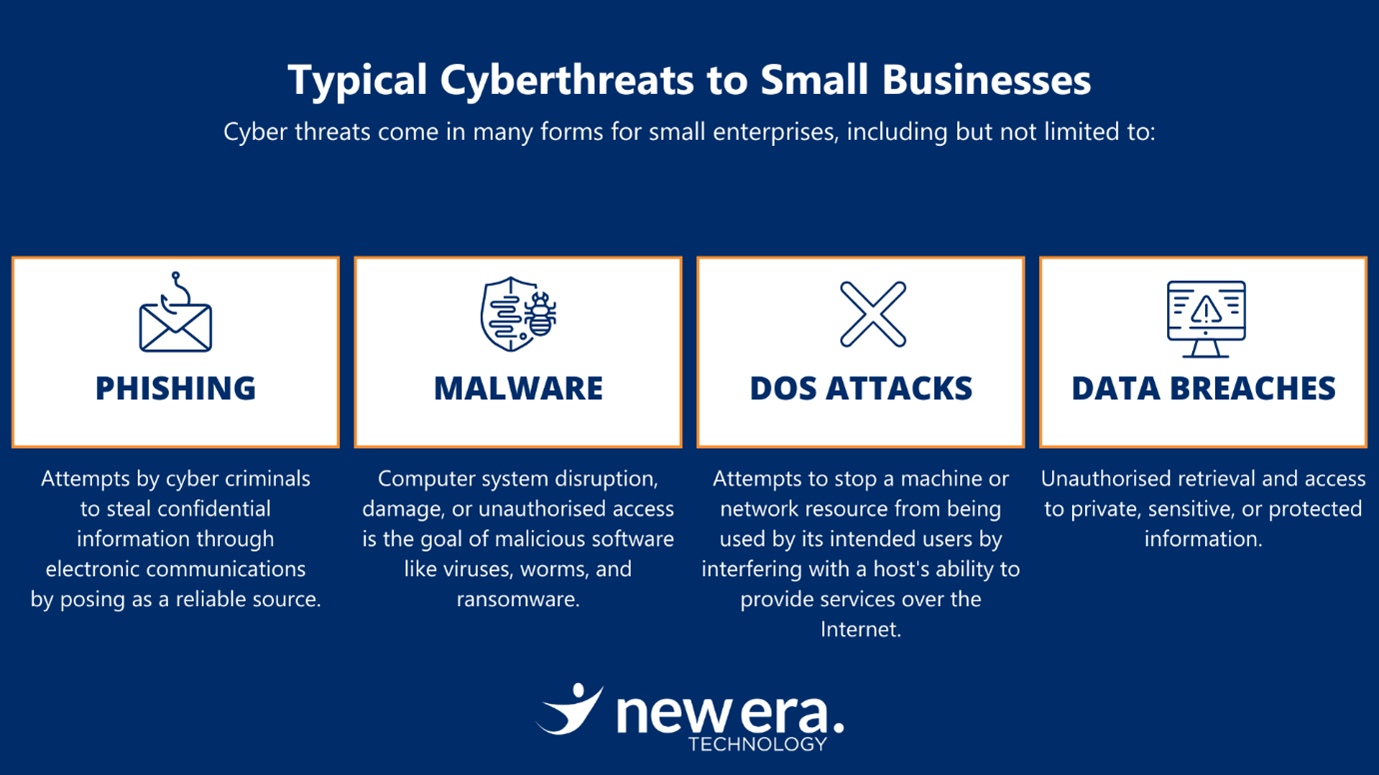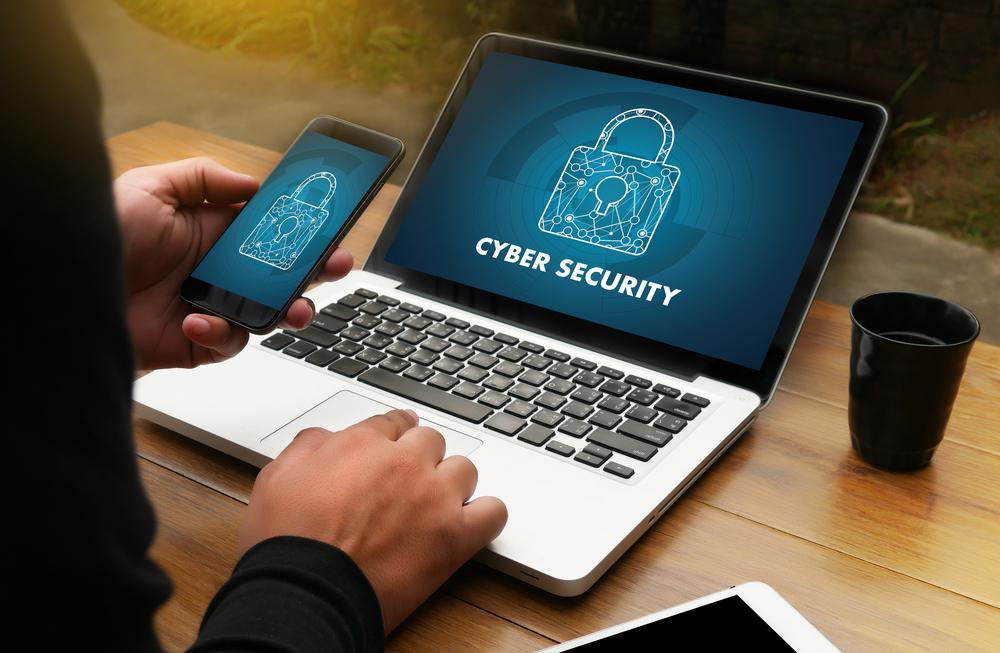According to a recent global McAfee Corp study, 71% of small businesses see cybersecurity as one of their biggest vulnerabilities. Mat Cremen from New Era Technology, our provider and a trusted business partner, says it’s a concern that’s warranted.
Here, Mat shares his insights on just how at-risk you are from cyberattacks as a small business and what you can do to help protect yourself.
Cyberattack Defense for Small Businesses: Techniques and Best Practices – Mat Cremen, New Era
As a managed service provider, we closely monitor the cybersecurity landscape and have noticed increasing cyber threats on small to medium-sized businesses (SMBs).
According to the latest government stats, 94,000 cyber security reports were made last year. That’s one every six minutes (ASD Cyber Threat Report).
Many small businesses don’t have the staff and resources necessary to protect against sophisticated cyberattacks. Unfortunately, this makes you a desirable target for cybercriminals who want to take advantage of this gap in important security measures.
To help you stay protected, here are some essential techniques and best practices for cyberattack defense tailored specifically for small businesses like yours.

Typical cyber threats to small business
Cybersecurity threats come in many forms. Some of the most common include:
- Phishing –Attempts by cybercriminals to steal confidential information through electronic communications by posing as a reliable source.
- Malware – Computer system disruption, damage or unauthorised access caused by malicious software, including viruses, worms and ransomware.
- DOS attacks – Attempts to stop a machine or network resource from being used by its intended users that interferes with a host’s ability to provide services over the internet.
- Data breaches – Unauthorised retrieval and access to private, sensitive or protected information,

How to protect yourself: cyber security best practices
It’s important to understand the nature and risk of cyberattacks against small businesses and to invest in mitigation methods to protect operations, consumer data, and business integrity.
You need invest in a multi-layered cybersecurity strategy that incorporates the following best practices to guard against these threats.
Employee security awareness training
The first line of defense against cyberattacks is your employees. Frequent training sessions can help them identify phishing attacks and campaigns, realise the value of strong passwords, and securely use company resources.
We recommend that your security awareness training content is:
- Tailored to roles
- Engaging with interactive formats
- Regularly updated and refreshed
It should also include testing and phishing simulations, use a continuous feedback mechanism, and be integrated into your company culture.
Robust access control
Create a strong, unique password for every business account. Whenever feasible, use multi-factor authentication (MFA). Also, restrict sensitive information access to personnel who require it to carry out their duties.
Further recommendations include role-based access control (RBAC), frequent access reviews, using a Password Manager, using secure authentication protocols, and requiring a VPN for remote access.
Regular patching and updating of systems
Cybercriminals use operating systems and software flaws as entry points for their attacks. To protect yourself from this, you need to make sure you’re updating all systems with the most recent security patches as quickly as possible.
Protect your network
Employ next-generation firewalls to prevent unauthorised users from accessing your network and encrypt data sent over it.
Additional strategies include using strong encryption for data transmission and network segmentation, intrusion detection and prevention systems, regular network audits and monitoring, and securing remote access (using a VPN).
Frequently backup your data
Frequent backups of essential data can lessen the harm caused by data loss or ransomware attacks. So ensure backups are routinely checked for integrity and kept in a safe, off-site location.
Also, consider implementing the ‘3-2-1 backup rule’, automating backup processes, encrypting backup data, verifying backup integrity, securing and monitoring backup access, and choosing the right backup solutions.
Create, evaluate, update, and test your incident response plan
A cybersecurity event’s effect and recovery time can significantly decrease with an up-to-date and tested incident response plan.
Because of this, it’s important you strategically and regularly test your plan to ensure all staff members are aware of their roles and duties in the case of an attack. Additionally, provide training and awareness around the plan, and communicate where it’s saved and who can update it.

Investing in cybersecurity is invaluable
Cybersecurity is a continuous effort rather than a one-time solution. By investing in it, you’re protecting your company, reputation, and client and customer data and privacy. This means it’s invaluable to your future success.
For more information on defending your small business from cyberattacks, contact Mat from New Era Technology – details below.
Guest profile
Mat Cremen is Sales Director at New Era Technology, a global technology solutions provider based in Newcastle, NSW. New Era can enhance your business’s cyber security position with a tailored approach that aligns with your requirements and budgets. They work with you to develop a comprehensive strategy that addresses your specific security challenges—and are equipped for each stage of the journey.
Mat Cremen – New Era Technology
(02) 4940 1800| mathew.cremen@neweratech.com | www.neweratech.com.au









